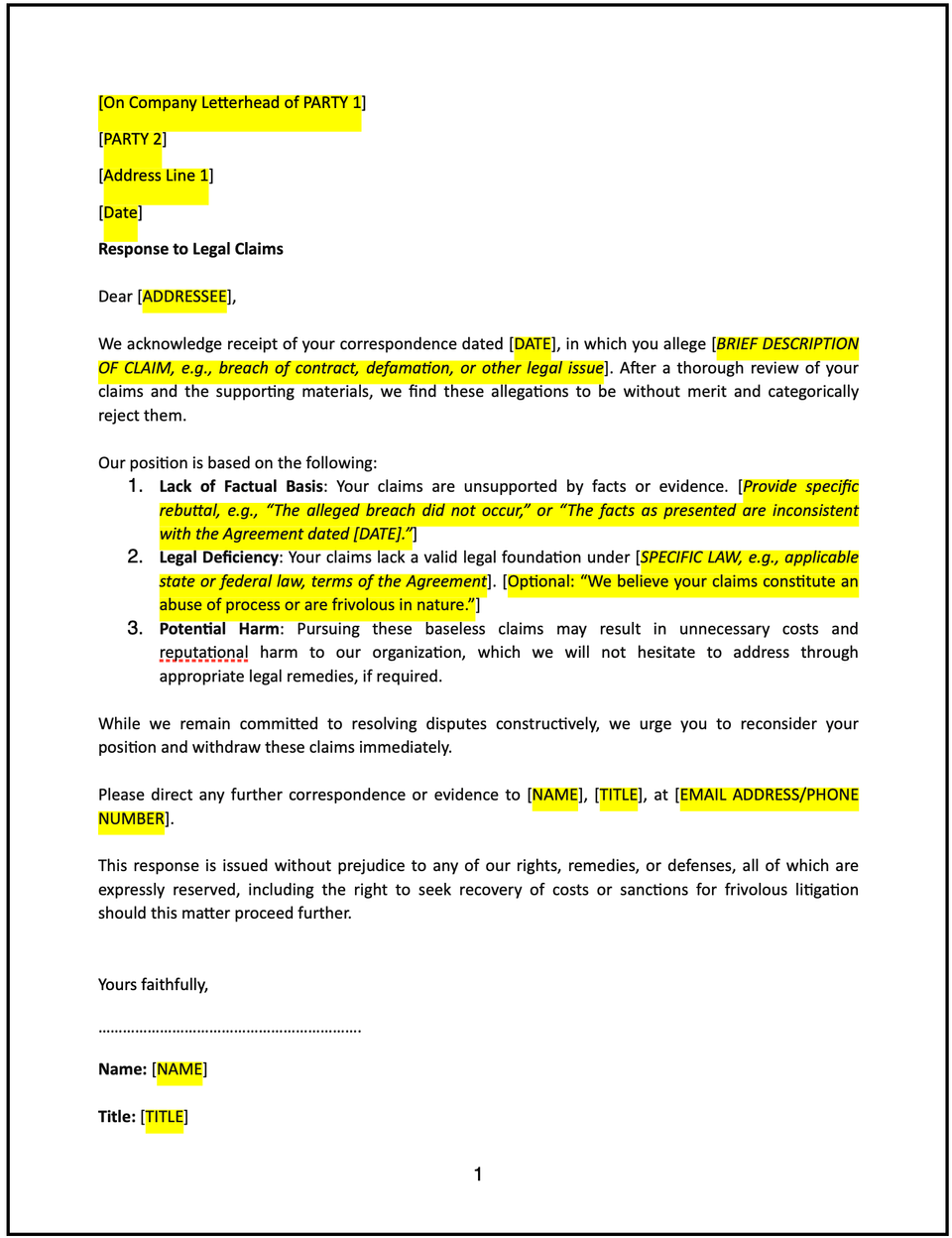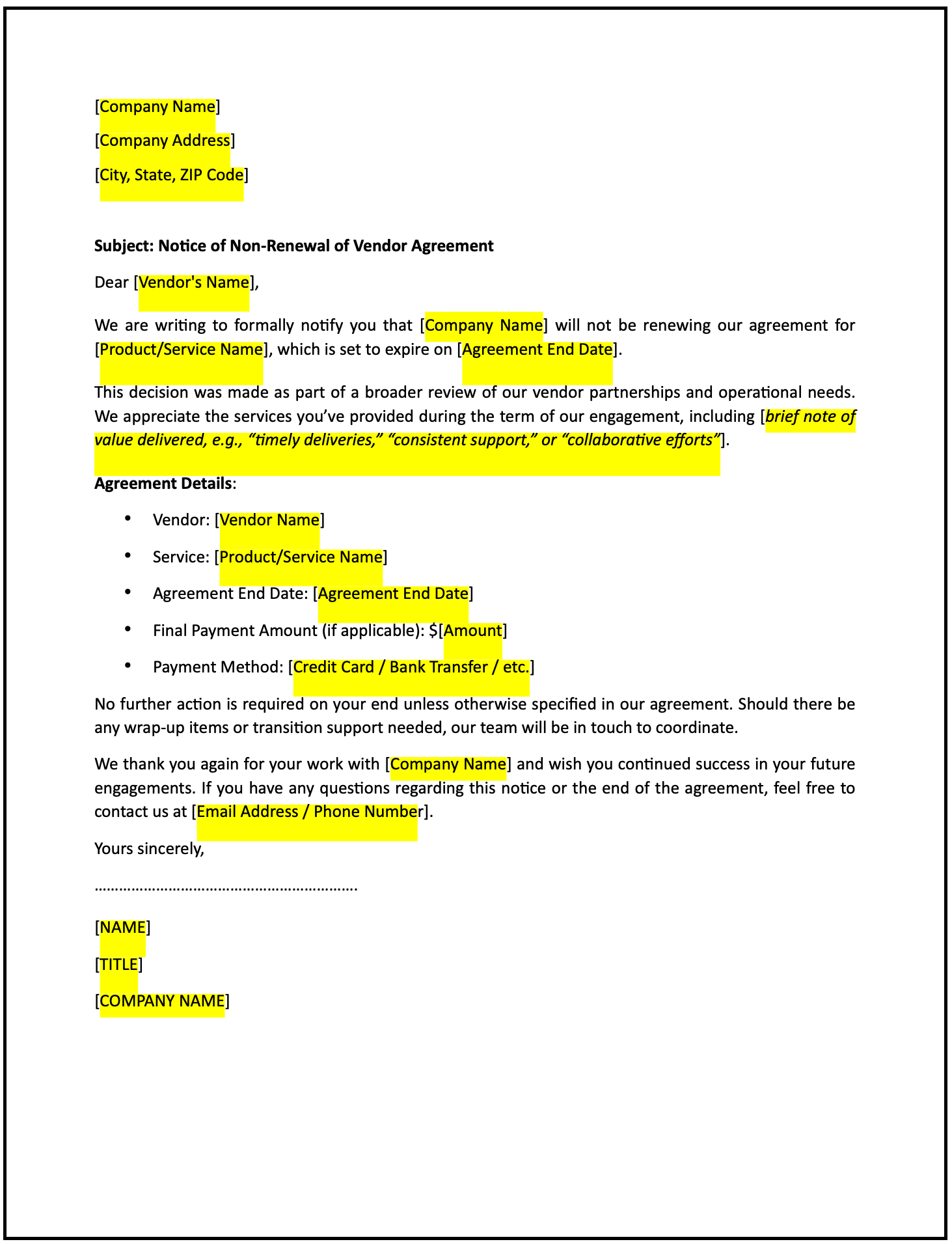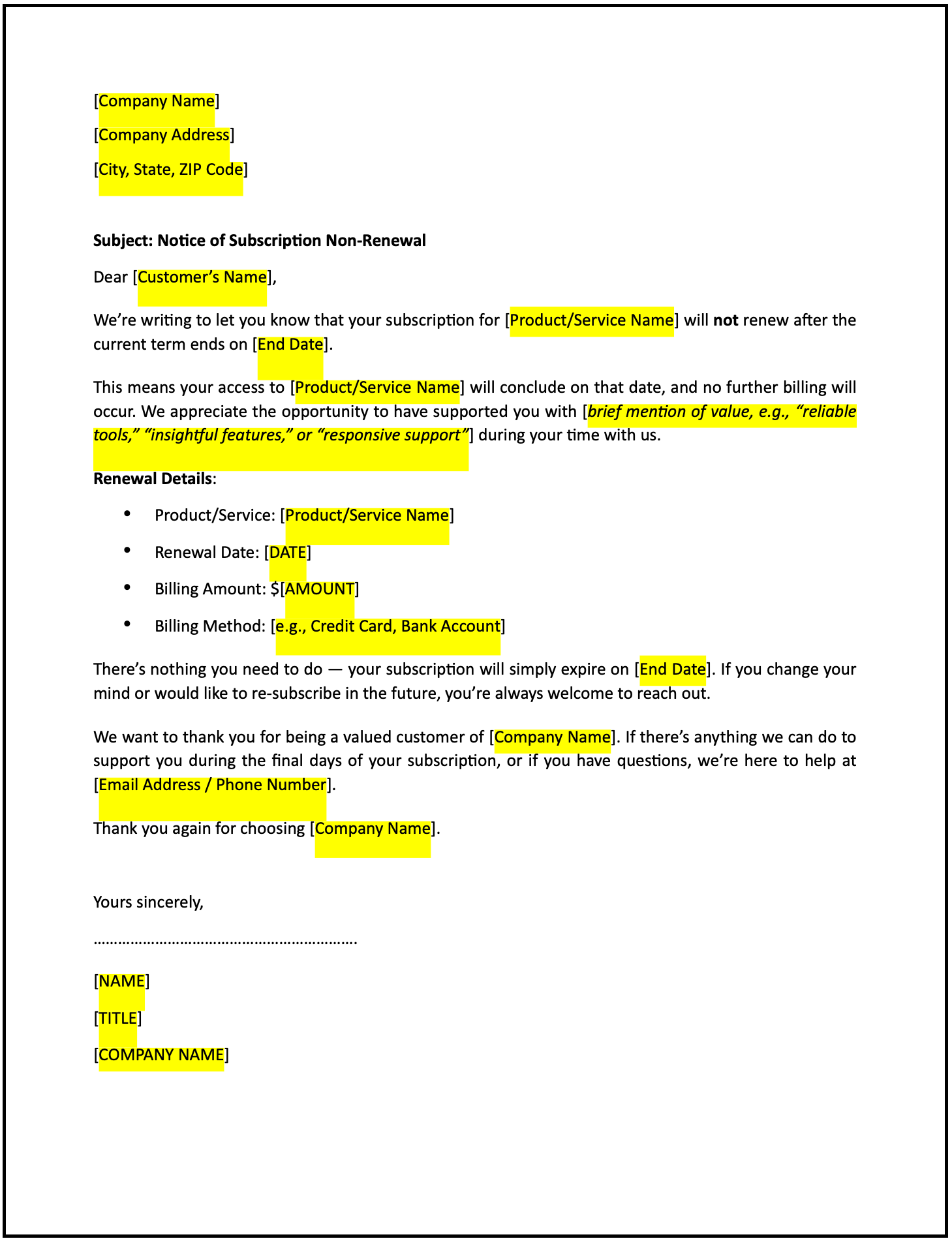Letter of response to frivolous legal claims: Free template

Letter of response to frivolous legal claims
A letter of response to frivolous legal claims is a formal way to refute baseless allegations, assert your position, and discourage further unnecessary legal action. This letter outlines the lack of merit in the claims, references supporting facts or legal principles, and seeks to resolve the matter efficiently.
How to use this letter of response to frivolous legal claims
- Open with acknowledgment: Begin by referencing the correspondence or notice containing the frivolous claims.
- State your position: Clearly outline that the claims lack merit and provide a concise explanation of why they are baseless.
- Provide evidence: Include any supporting documentation or facts that demonstrate the claims’ lack of validity.
- Reference applicable laws or agreements: Cite relevant legal principles or contractual terms that counter the claims.
- Highlight potential consequences: Indicate that pursuing baseless claims could result in legal or financial repercussions, such as sanctions or cost recovery.
- Maintain a professional tone: Ensure the letter is respectful, clear, and focused on discouraging further action.
- Invite resolution: Express a willingness to resolve the matter amicably or request that the claims be withdrawn.
- Provide contact information: Include details for follow-up communication or clarification if necessary.
Benefits of using a letter of response to frivolous legal claims
This letter template ensures a structured and professional way to address baseless claims while protecting your interests and discouraging unnecessary disputes. Here’s how it helps:
- Protects your rights: Clearly asserting your position demonstrates your commitment to defending against unwarranted claims.
- Discourages escalation: Highlighting the lack of merit in the claims reduces the likelihood of further action.
- Reflects professionalism: A well-crafted letter reinforces your credibility and seriousness.
- Reduces legal risks: Addressing frivolous claims promptly minimizes potential legal or reputational harm.
- Supports documentation: Creating a formal record of your response is valuable for future reference or legal proceedings.
Tips for writing an effective letter of response to frivolous legal claims
- Be specific: Clearly reference the claims, outline their lack of merit, and provide supporting evidence.
- Use professional language: Maintain a respectful yet assertive tone to convey the seriousness of your position.
- Reference legal principles: Cite applicable laws or precedents that counter the frivolous claims.
- Highlight consequences: Explain the potential repercussions of pursuing baseless allegations.
- Keep it concise: Focus on the key points without overwhelming the recipient with unnecessary details.
Frequently asked questions (FAQs)
Q: What details should I include in this letter?
A: Include references to the claims, your refutation, supporting evidence, applicable laws, and potential consequences for pursuing frivolous actions.
Q: Should I personalize the letter?
A: Yes, addressing the sender directly ensures clarity and demonstrates attentiveness.
Q: Who typically receives this letter?
A: Send the letter to the individual or entity making the frivolous legal claims or their legal representative.
Q: How formal should this letter be?
A: The tone should be highly professional and assertive, focusing on clarity and discouraging further action.
Q: When should this letter be sent?
A: Send the letter promptly after reviewing the claims and determining their lack of merit.
Q: Can this letter include a request for withdrawal of the claims?
A: Yes, requesting withdrawal of baseless claims demonstrates your confidence and intent to resolve the matter efficiently.
Q: Is acknowledgment from the recipient required?
A: While not mandatory, requesting confirmation ensures the letter has been delivered and understood.
This article contains general legal information and does not contain legal advice. Cobrief is not a law firm or a substitute for an attorney or law firm. The law is complex and changes often. For legal advice, please ask a lawyer.


